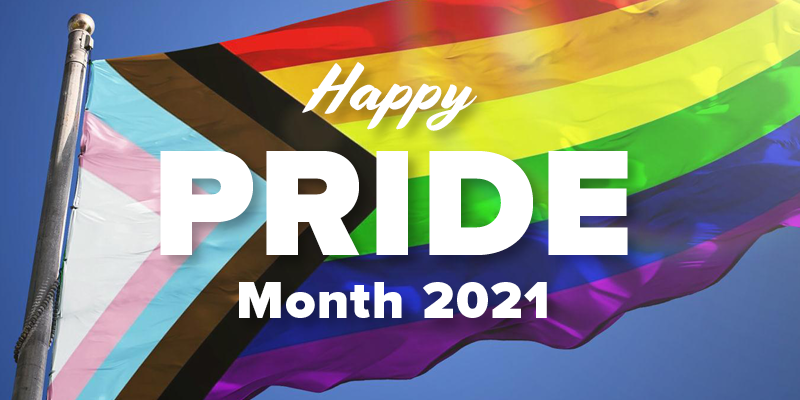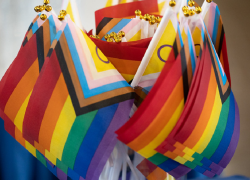
Pride Month is a chance for lesbian, gay, bisexual, transgender and queer (LGBTQ+) people to be proud and visible in a world that tells us not to be. Pride Month is a chance to celebrate and honor the work of LGBTQ+ people as we fight every day for equity and inclusion in society, in the law and in our workplaces.
Thanks to the tireless work of advocates, we’ve had many recent encouraging wins at the national level:
- Last June, in Bostock vs. Clayton County,the Supreme Court affirmed that Title VII of the Civil Rights Act protects employees from discrimination based on their sexual orientation and gender identity.
- In January, President Biden issued an Executive Order 13988, Preventing and Combating Discrimination on the Basis of Gender Identity or Sexual Orientation, and another executive order on Advancing Racial Equity and Support for Underserved Communities Through the Federal Government, which includes LGBTQ+ persons. He also rescinded a 2020 executive order on Combating Race and Sex Stereotyping that had a chilling effect on diversity and inclusion training programs among federal agencies and contractors.
- The Biden-Harris administration has stated strong support for the Equality Act, which would amend existing federal civil rights laws to expressly include non-discrimination protection on the basis of sex (including gender identity and sexual orientation), providing security and equality to LGBTQ+ people in accessing housing, employment, education, public accommodations, health care and other federally funded services, credit and more.
- In March, President Biden became the first U.S. president to recognize Transgender Day of Visibility.
In the past year,anti-racism protests have sparked important conversations around diversity, equity and inclusion. The Department of Labor has recommitted to being an inclusive workplace, and continues to offer trainings related to sexual orientation and gender identity, including those related to the use of gender-inclusive language and pronouns. I’ve been proud to provide these trainings and support those efforts as a vice president of Pride at DOL, an affinity group for the department’s LGBTQ+ employees and contractors and our allies.
As part of the department’s efforts to implement the sexual orientation and gender identity executive order, our Civil Rights Center – a member of the Title VI/Title IX Interagency Working Group led by the Department of Justice – will serve on the Title IX and Executive Order 13988 Committee. This committee will serve to provide opportunities for interagency collaboration to advance EO 13988’s goal of protecting individuals from discrimination on the basis of sexual orientation and gender identity, ensuring the Bostock decision is applied to Title IX and other relevant statutes, and making federal agencies welcoming to LGBTQ+ people.
The department is also working to reverse the impact of the prior administration’s executive order on diversity training. Our Office of Federal Contract and Compliance Programs is examining promising practices for diversity training as one component of broader efforts to eliminate bias from employment practices. In addition, the department is conducting an equity review to better understand how well our policies and programs are reaching historically underserved populations, and launched a related data challenge.
But there is still more work to do, and our pride can come at a price. Being visible sometimes means being exposed to harassment, discrimination, and violence. This is especially true for transgender people, particularly those who are women and people of color. Equity and inclusion require creating an environment — through language, policies and practices — that not only tolerates but recognizes and affirms people’s identities and relationships. Only with this can employers create a sense of belonging and value in their organization.
So as we celebrate Pride Month this year and every year, let’s recognize all the work that has been done and that is necessary to keep pushing forward.
B.A. Schaaff (they/he) is an attorney in the U.S. Department of Labor’s Office of the Solicitor and is vice president of Pride at DOL.

 U.S. Department of Labor Blog
U.S. Department of Labor Blog
